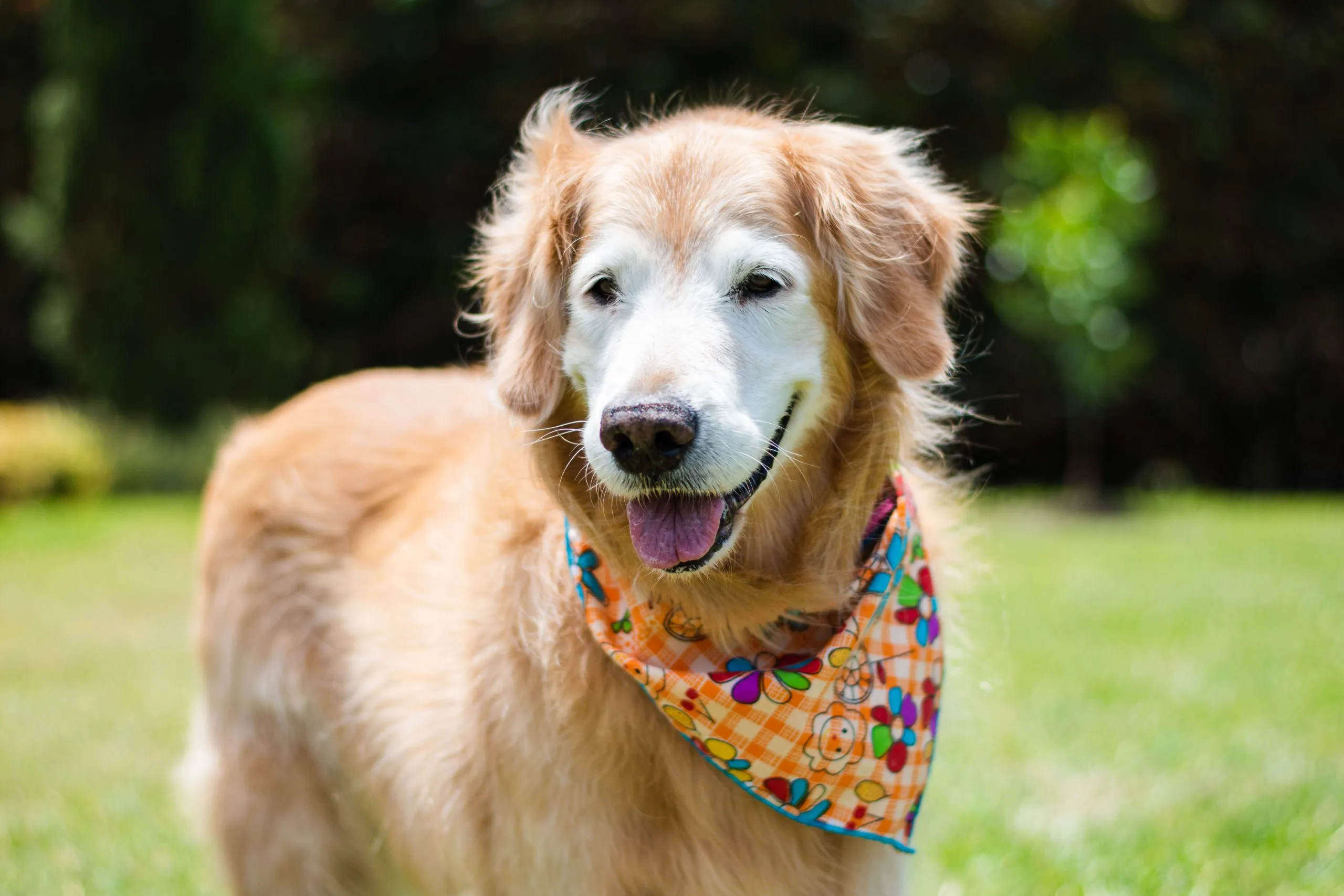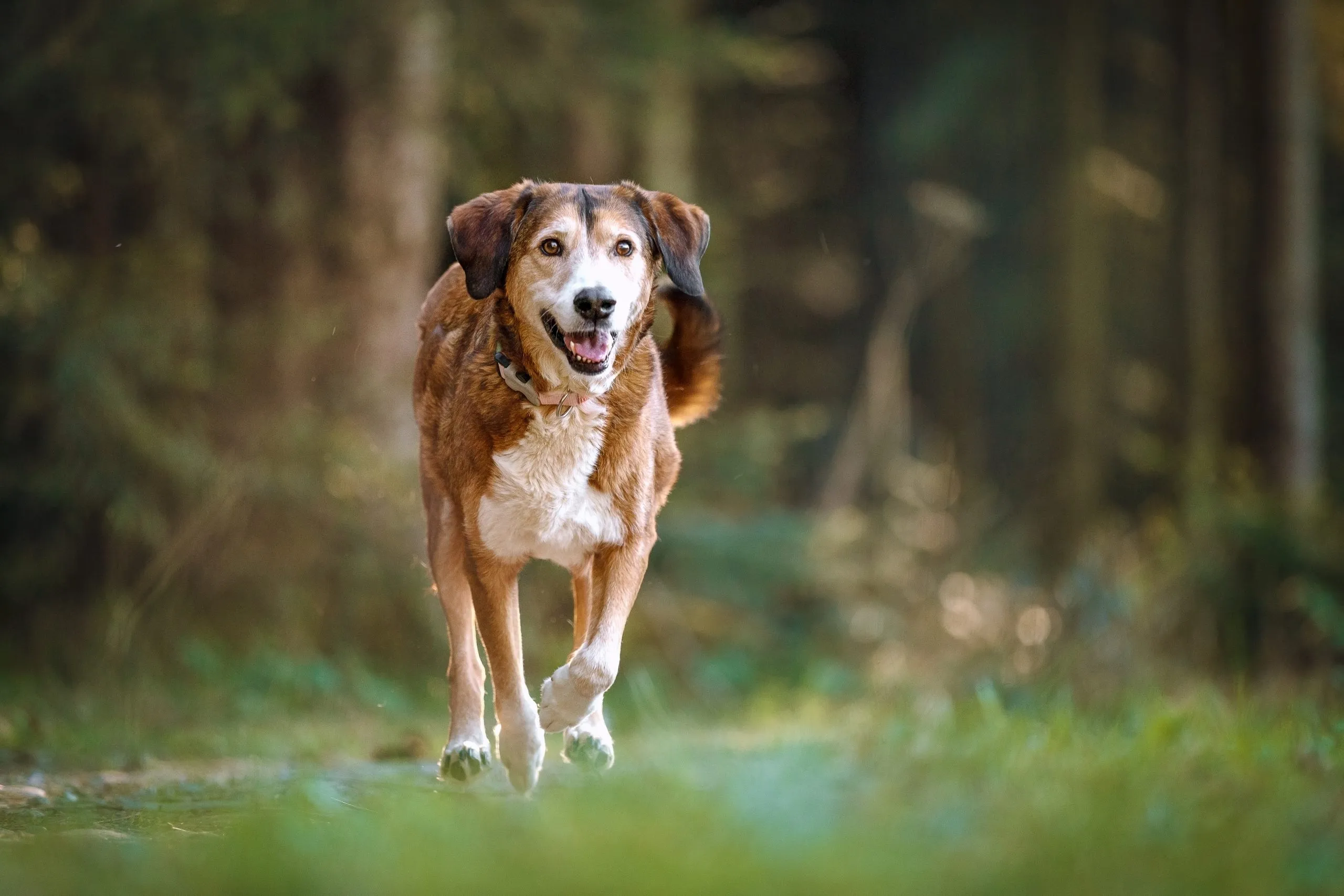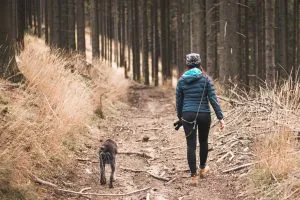Bringing a new furry companion into your life is an exciting prospect, and many potential owners are immediately drawn to the boundless energy and playful antics of puppies. However, there’s a heartwarming and often overlooked option for those seeking a loyal friend: adopting an older dog. These seasoned canine citizens, often found looking for a loving home, have a wealth of affection to give and can bring immense joy to their adoptive families. If you’re contemplating adding a dog to your household, exploring the option to Adopt An Older Dog Near Me could be one of the most fulfilling decisions you’ll ever make.
The idea of adopting a senior dog might conjure up misconceptions, but the reality is far more rewarding. These dogs have a lifetime of love to offer, and by choosing to adopt an older dog near me, you are providing a second chance at happiness for an animal that truly deserves it.
The Unseen Benefits of Adopting a Senior Dog
One of the most significant advantages of opening your home to an older dog is that they often come with a pre-existing foundation of good behavior. Many senior dogs are already house-trained, and a considerable number are proficient with leash manners. As Jamie Garabedian, Assistant Director of Operations at Northeast Animal Shelter (NEAS), an affiliate of the MSPCA-Angell, explains, “Usually, if you’re adopting an older dog or cat, the likelihood is that they’re more acclimated to already living in a home setting and can settle in a little bit quicker than a puppy or a kitten could.” This makes them an ideal choice for first-time pet owners or those seeking a less demanding transition into pet parenthood.
The emotional reward of providing a safe and loving environment for a senior dog is profound. Moving from a familiar home to a shelter can be a deeply unsettling experience for any animal. The act of rescuing a dog from this transitional period and integrating them into a stable, caring home offers an unparalleled sense of fulfillment. These dogs often seem to possess an innate gratitude, understanding that they’ve been given a precious second chance at a happy life.

Debunking Myths Surrounding Older Dogs
Despite their many advantages, senior dogs are often overlooked due to prevailing myths. One common misconception is that adopting an older dog means inheriting another family’s “problem pet.” This is rarely the case. While life circumstances such as owner illness, job loss, or the passing of a beloved owner can lead to a senior dog needing a new home, these situations are typically unrelated to the dog’s behavior or temperament.
Other prevalent myths include:
- High Veterinary Bills: While all pets require veterinary care, the assumption that senior dogs inherently incur higher vet bills than younger dogs is often unfounded. Regular check-ups and preventative care are essential at any age. You can proactively manage pet health concerns by scheduling regular screenings with your veterinarian.
- Untrainable Seniors: As previously mentioned, many senior dogs are already well-trained in basic obedience and house manners. Their capacity to learn new things or adapt to new routines remains, albeit with patience and positive reinforcement.
- Lack of Playfulness: While some senior dogs may have a more subdued energy level, many remain remarkably active and playful. It’s entirely possible to find an older dog that can enthusiastically join in on activities, perhaps even surprising younger counterparts with their zest.
A particularly poignant myth is the belief that one will have a significantly shorter time with a senior dog. While it’s true that a senior dog may not have as many years ahead as a puppy, life’s unpredictability means there are no guarantees with any pet. The focus should be on cherishing the time you have and providing the best possible quality of life. As Jamie notes, “You’re helping to save a life – and because of you, that dog or cat is going to have a loving family and, ultimately, a happy retirement.”

Navigating the Challenges of Senior Dog Adoption
While the joys of adopting a senior dog far outweigh the challenges, it’s important to be prepared. The transition to a new home can be stressful for any dog, and some older dogs may exhibit signs of separation anxiety. Understanding treating separation anxiety in older dogs can be beneficial. Additionally, like all animals, senior dogs can be susceptible to age-related health issues. The primary challenge, as Jamie articulates, is acknowledging the reduced lifespan: “I honestly think the biggest challenge is knowing you’re not going to have as much time with them.” This requires a degree of emotional preparedness, accepting that the time you share may be shorter but no less precious.
Preparing for Your Senior Dog’s Arrival
Regardless of a dog’s age, adopting a pet is a significant commitment that requires careful consideration. Reflect on your lifestyle and what you can realistically offer a dog. Are you an active individual who enjoys daily walks and outdoor adventures, or do you prefer a more relaxed home environment? Matching your lifestyle with a dog’s personality and energy level is crucial for a successful adoption. Consulting with shelter staff can provide invaluable guidance in finding the perfect match.
When introducing a new senior dog into a household with existing pets, patience and a gradual approach are key. For dog-to-dog introductions, it’s advisable to let the dogs meet at the shelter first to gauge their initial interaction. Once home, ensure they have separate spaces and feeding areas to minimize potential conflict and allow them to acclimate gradually. As Jamie wisely observes, “It would be the same with a person. If someone moved into your house tomorrow and you’ve never met them, are you immediately trusting and bonding with them, or do you need some time?”

Ensuring the Health and Happiness of Your Senior Dog
Your veterinarian will be your most important partner in ensuring your senior dog remains healthy and happy. Discuss a tailored maintenance plan, which may include supplements if your dog has conditions like arthritis. Regular veterinary check-ups, including bloodwork, urinalysis, physical examinations, and dental cleanings, are vital for early detection and management of any health concerns.
Exercise remains critical for senior dogs, even if the intensity and duration need adjustment. Daily walks provide not only physical activity but also crucial mental stimulation. The act of sniffing is a fundamental way for dogs to explore their environment and process information, and it remains a highly enriching activity for older dogs whose other senses may be declining.

Ready to Find Your Perfect Senior Companion?
If you’re looking to adopt an older dog near me, consider the incredible rewards that come with giving a senior dog a loving home. These dogs have so much to offer in terms of companionship, loyalty, and unconditional love. Their calmer demeanor and established personalities can make them an ideal fit for many households.
When you decide to adopt older dogs near me, you are not just gaining a pet; you are saving a life and enriching your own. Many shelters and rescue organizations are dedicated to finding wonderful homes for senior pets. Embracing the journey of caring for a senior dog is a truly rewarding experience, filled with love, gratitude, and the quiet joy of knowing you’ve made a profound difference.
If you’re considering bringing home a senior dog, remember that understanding whats a senior dog age can help you set realistic expectations. And for those with existing pets, learning about introducing puppy to senior dog can help ensure a smooth transition.
To explore available senior dogs, visit local animal shelters and rescue organizations. Your perfect, loving companion might just be waiting to meet you.
References
- MSPCA-Angell. (n.d.). Pet Care for Older Animals. Retrieved from https://www.mspca.org/angell_services/pet-care-for-older-animals/
- MSPCA-Angell. (n.d.). Adoption Search. Retrieved from https://www.mspca.org/adoption-search/
- Northeast Animal Shelter. (n.d.). Adopt. Retrieved from https://adopt.northeastanimalshelter.org/
